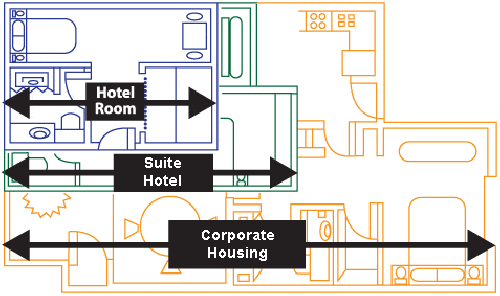
Accommodations are commonly located near all of the amenities needed, including close proximity to employment or education. Most often found in metropolitan areas, corporate housing is near grocery stores, medical needs, entertainment, dining and gyms.
In addition to the physical conveniences of temporary living, clients can maintain similar eating habits or take necessary precautions with their diet. Fully-equipped kitchens allow clients to cook their own meals to accommodate any food allergies, eat more healthfully or follow special dietary needs. Eating in the comfort of an apartment allows clients to conveniently eat on their own schedule and reduces restaurant dining expenses.
Another benefit of corporate housing is leaving their items intact while they travel for work or return home on weekends, knowing their items are secure in a residential community. This peace of mind supports productivity. If traveling with a vehicle, corporate housing has secured parking areas and additional storage available. If not, the provider can access car services for transportation.
Providers often partner together to meet client needs. Working together, professional providers achieve the desired outcome for client needs. This behind the scenes collaboration ensures the client experiences a seamless transition to their temporary lodging.
A typical corporate housing unit is: